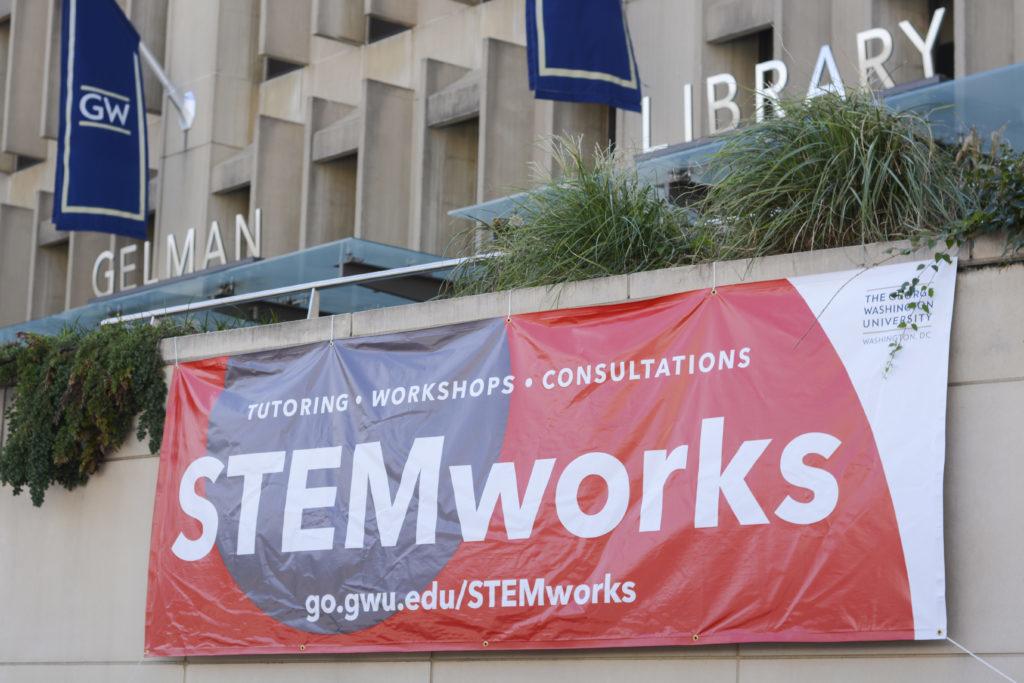A new tutoring and workshop center for science, math and engineering students officially opened in Gelman Library with a ribbon-cutting ceremony Thursday afternoon.
The new lab, located on the entrance level of Gelman Library, has been open to students since the beginning of the academic year featuring space for tutoring, consultations with faculty and skill-building workshops.
Speaking to attendees at the ceremony, Provost Forrest Maltzman said the space was a “quantitative” version of the University’s Writing Center, where students can seek help on papers and research projects. The lab is designed to encourage students to explore data collection and use technology in new ways, he said
Maltzman and Geneva Henry, the dean of libraries and academic innovation, said the center is part of the future of STEM education at the University and indicative of the evolving role of campus libraries.
The main focus of the lab is to provide the first space on campus where students can receive peer-to-peer tutoring in math-heavy courses like economics, physics, statistics and accounting, Maltzman said. He said the lab would “build up support for our students.”
Jasmina Abdalla, a junior biology major and tutor in the new program, said in an interview that the center will make tutoring “more accessible” and hopefully give more attention to less popular majors at GW like biology.
Speakers at the event highlighted the changes the University has made in recent years to be innovative in how faculty teach science and technology courses. A selection of artifacts from the library archives were on display at the event, including a memo that established psychology as a major.
“Data is crossing every discipline,” Henry said. “It’s more than just supporting, it’s really about building a community.”
The space will also host seminars throughout the semester, focused on topics like geography, coding languages and using data in the humanities, to encourage students to learn skills outside of their major, Henry said.
Maltzman said the new lab will be useful in solving a problem that he faced while working on his political science dissertation at the University of Minnesota. He said his project involved a lot of quantitative data analysis and, because political science did not usually rely heavily on data, it was difficult to analyze and present his findings.
“It’s something I wanted to do for a very long time,” Maltzman said of the new lab. “Investing in analytical capabilities is the direction of the future.”





